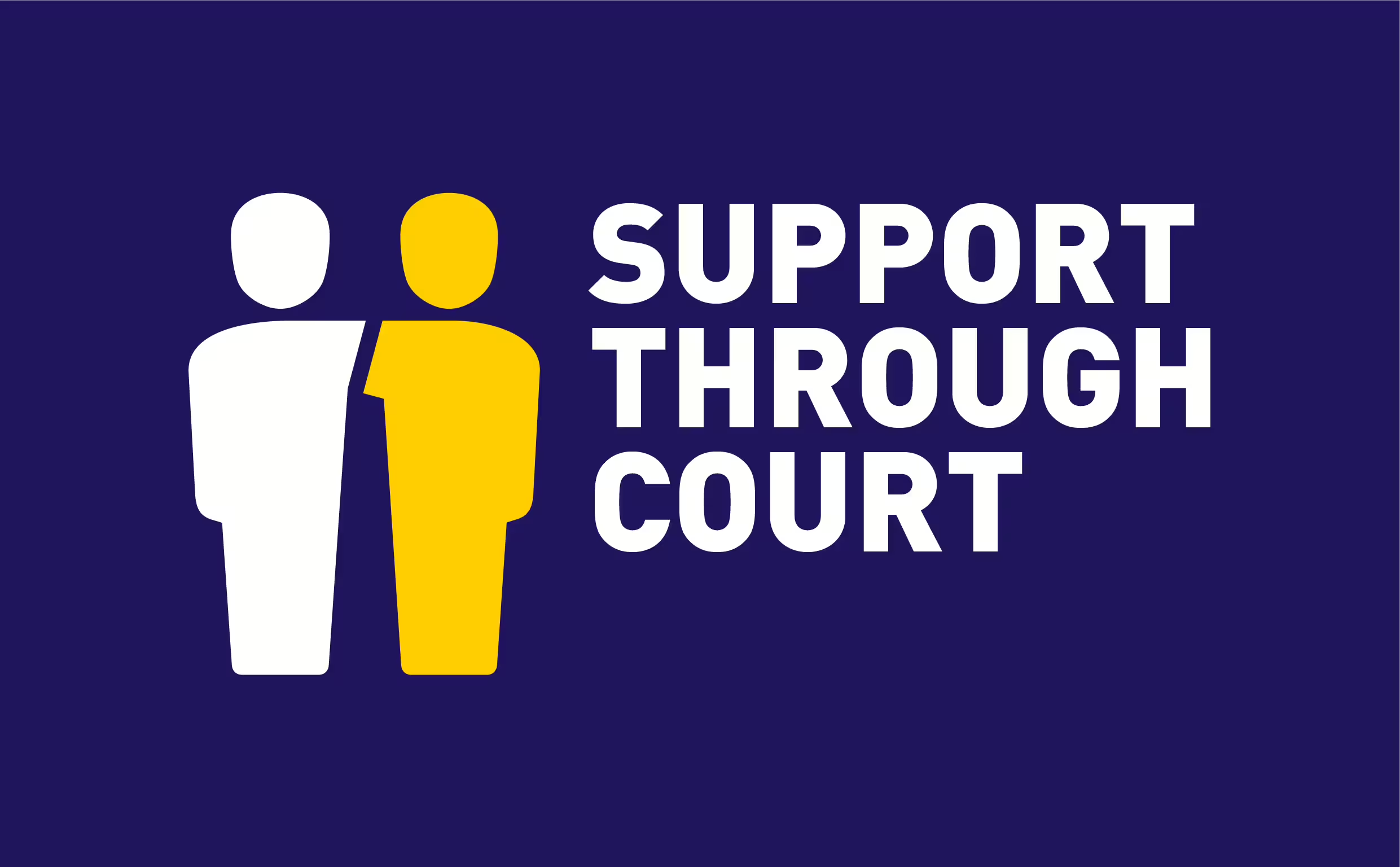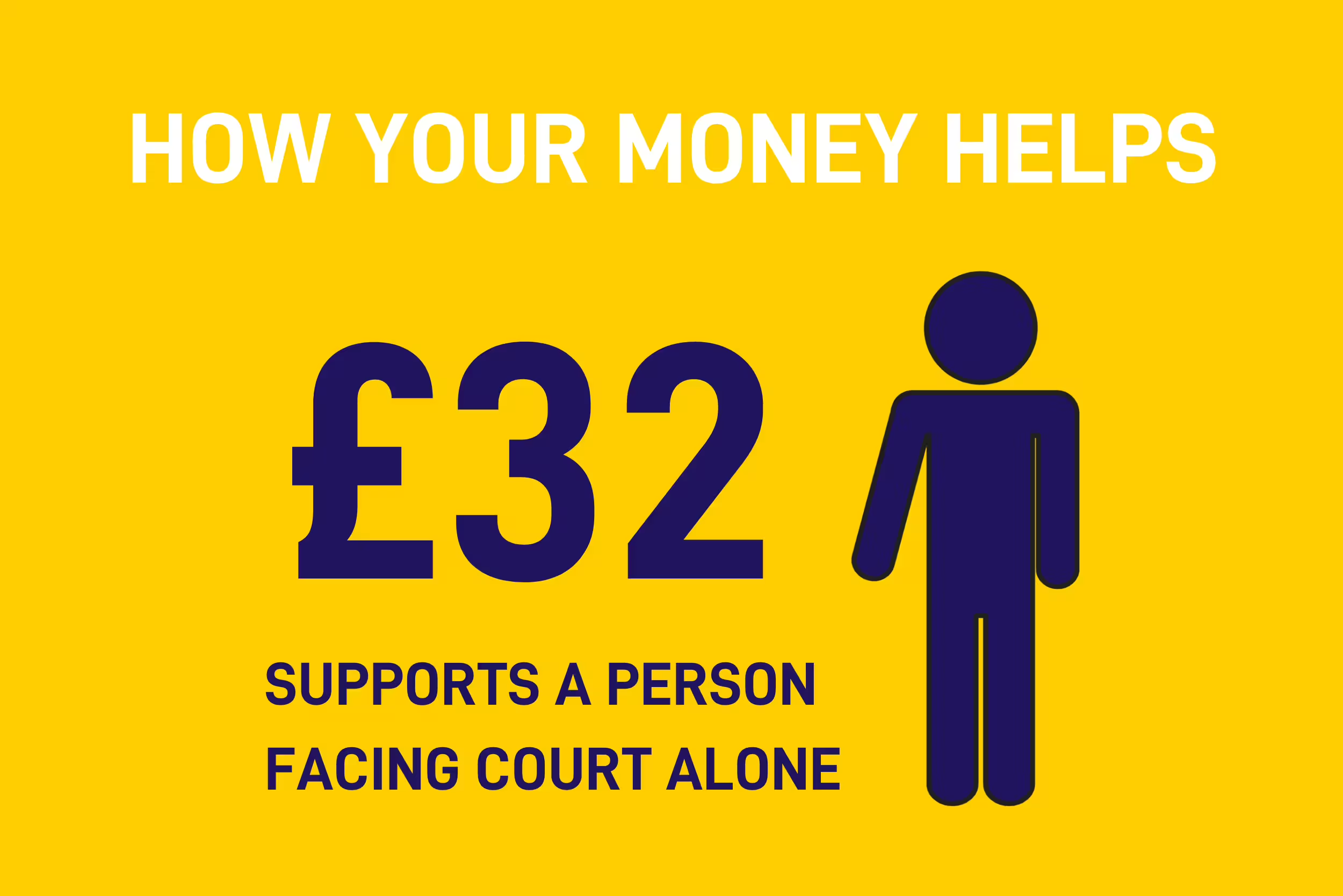Annual Report
We’re grateful to our amazing volunteers and supporters for enabling thousands of people to access justice.
Last year, we provided support on over 45,000 occasions for people navigating the courts without legal representation. That’s 45,000 moments of reassurance, clarity, and calm, made possible only through the dedication of our incredible volunteers and the generosity of our supporters.
Over 1000 people gave their time to support people facing court alone. Our volunteers are at the heart of what we do: offering not just practical guidance, but humanity and compassion when it’s needed most. Whether it’s standing beside someone in court or helping to complete daunting paperwork, their kindness makes a genuine and lasting impact.
Reports
We do a variety of work to influence improvements to the court service for litigants in person including submitting policy papers, and conducting regular small-scale ‘spot surveys’ of clients on topical issues:
Whiplash brief – an argument to postpone implementation of reforms
The Government is planning to introduce reforms to ‘whiplash’ claims which will result in an increase in the threshold for small claims and set a fixed tariff compensation that reduces the level of damages that can be claimed. These changes will prevent more injured people from recovering their legal costs, and make it less likely for those in ‘whiplash’ claims to be able to afford legal advice.
Online Courts – a litigant in person’s perspective
The over-riding message is that the main barriers to using online court services are more about the legal system than about online access per se: people find the system complex and are fearful of making mistakes when the outcomes can have a significant impact on their lives. There is a sense that many people could use online court processes, but the vast majority clearly want a back-up mechanism for reassurance before they would feel truly confident.
Legal language and its impact on litigants in person
This report summarises the findings from the 2017 survey on use of language in the court process.



